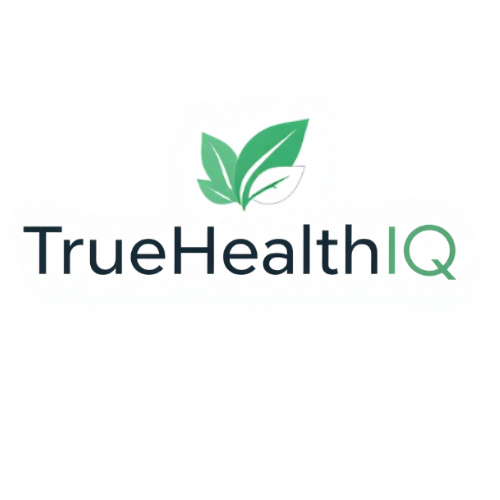Women’s Health: A Complete Guide to Wellness at Every Stage of Life
Women’s health includes a wide range of issues that impact physical, mental, and emotional well-being. From reproductive health to chronic conditions and emotional resilience, understanding these unique challenges is key to living a vibrant, empowered life.
In this guide, we’ll explore critical areas of women’s health and wellness—from puberty through menopause—while offering practical advice and product suggestions to support you at every stage.
Foundations of Women’s Health
Biological Factors
Hormonal fluctuations during menstruation, pregnancy, and menopause significantly influence a woman’s well-being.
Key hormones:
Estrogen – Supports bone density and reproductive function
Progesterone – Regulates the menstrual cycle and maintains pregnancy
Hormonal imbalances can lead to conditions like PCOS and endometriosis, which may cause chronic pain or fertility issues.
👉 A helpful tool for hormone balance is the vitamin D3 supplement with K2, which supports hormonal and bone health.
Lifecycle Changes
Every stage of life—from adolescence to menopause—brings unique health transitions.
Adolescence: Onset of menstruation
Reproductive years: Pregnancy and childbirth
Perimenopause/Menopause: Hot flashes, mood swings, and libido changes
A peri/menopause support supplement can help ease symptoms naturally, especially when paired with exercise and nutritional support.
Preventive Care for Lifelong Wellness
Routine screenings and preventive strategies are essential for long-term health.
Important screenings include:
Pap smear – Detects cervical cancer
Mammogram – Recommended from age 40 for breast cancer screening
Daily habits like a balanced diet, regular movement, and mental wellness practices significantly reduce health risks. To support physical activity at home, try a resistance band set for women—great for gentle, effective workouts.
Reproductive Health
Menstrual Health
Track your cycle, understand your flow, and seek help if experiencing:
Dysmenorrhea – Painful periods
Amenorrhea – Missed cycles
Menorrhagia – Heavy bleeding
Staying hydrated, reducing processed foods, and incorporating gentle movement can improve regularity.
Fertility and Family Planning
Fertility awareness helps you plan or prevent pregnancy effectively.
Age and lifestyle significantly affect fertility
Tracking ovulation with apps or ovulation kits increases conception chances
Explore birth control options with your doctor—hormonal, barrier, or natural methods.
Pregnancy & Postpartum Care
Support during pregnancy includes:
Balanced nutrition: Prioritize folic acid, iron, and calcium
Exercise: Safe movement like walking or prenatal yoga
Prenatal visits: Essential for monitoring development
Postpartum support is just as vital. Watch for signs of postpartum depression and don’t hesitate to ask for help.
Menopause Management
Menopause typically begins between 45 and 55. Common symptoms include:
Hot flashes
Sleep disturbances
Mood changes
Effective strategies:
Hormone therapy (if recommended)
Exercise & diet
Support groups
A calcium- and magnesium-rich diet helps prevent osteoporosis, a common risk after menopause.
Common Health Conditions in Women
Breast and Ovarian Health
Regular self-exams and screenings help detect early signs of:
Breast cancer
Fibrocystic changes
Ovarian cysts & PCOS
Don’t ignore changes—early detection saves lives.
Gynecological Disorders
Conditions like endometriosis, PID, and fibroids often cause pain and affect fertility. Early diagnosis through routine exams is critical.
Bone Health and Osteoporosis
After menopause, estrogen levels decline, increasing fracture risks.
Preventive tips:
Weight-bearing exercises
Foods rich in calcium & vitamin D
Bone density scans after age 50
Mental and Emotional Well-being
Stress and Anxiety
Women often juggle multiple roles, leading to elevated stress. Symptoms include:
Irritability
Trouble sleeping
Difficulty focusing
Mindfulness, therapy, and regular physical activity help manage symptoms.
Depression in Women
Women are more prone to depression due to:
Hormonal changes
Life transitions
Social pressure
Therapy, support groups, and medication can all provide relief.
Body Image and Self-Esteem
Media and societal norms can distort body image. Combat this with:
Self-acceptance
Body-positive communities
Focus on function over appearance
Healthcare Access and Advocacy
Insurance Coverage
Insurance affects access to essential services like birth control and prenatal care. Understanding your coverage ensures you’re receiving the support you need.
Women’s Health Advocacy
Organizations and healthcare providers continue to fight for:
Reproductive rights
Maternal care access
Mental health support
Your voice matters—advocate, vote, and support inclusive health policies.
Final Thoughts
Women’s health is multifaceted and ever-evolving. By embracing preventive care, staying informed, and seeking support, you empower yourself to live fully and well.
Try integrating helpful wellness tools like the vitamin D3 with K2, a peri/menopause support supplement, and a resistance band set to support your journey from the inside out.




![How to Lower Blood Sugar Naturally with Supplements? Does Gluco Extend Really Work? Honest Review of This Natural Blood Sugar Supplement [2025]](https://www.truehealthiq.com/wp-content/uploads/2025/04/GlucoExtend-png.webp)





